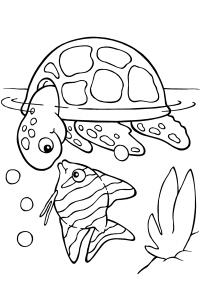 Zen is the art of seeing. While it is an offshoot of Buddhism, Zen is not Buddhism. We westerners try to pin Zen down into a specific category. As soon as we do, we don’t grasp what Zen is. Zen isn’t a religion; it isn’t a philosophy. I am a Zen Christian. There are also Zen Catholics and Zen Muslims. Yet, Zen isn’t Christianity, Catholicism, or Islam.
Zen is the art of seeing. While it is an offshoot of Buddhism, Zen is not Buddhism. We westerners try to pin Zen down into a specific category. As soon as we do, we don’t grasp what Zen is. Zen isn’t a religion; it isn’t a philosophy. I am a Zen Christian. There are also Zen Catholics and Zen Muslims. Yet, Zen isn’t Christianity, Catholicism, or Islam.
There are two ways of viewing the world. There is Cartesian thinking, and what we can call Zen or perhaps Being. Cartesian thinking begins with the self ( “I think therefore I am”) and seeks to understand objects in relation to the self. In Cartesian thinking, everything – the self, the universe, and God, are objects.
Now you might be saying God isn’t an object and neither is a person. However, you view God and other people as separate from your self. This way of thinking deals with everything as “other” from the self. The self is separate from all other things. Cartesian thought relies on concepts as reality. “God” is a word that denotes a concept. That concept is what we consider reality. Likewise “Chris” is a concept of self that I consider reality.
Zen, on the other hand, doesn’t view anything as an object or concept. Zen seeks to point us to experience. Concepts are not experience; they are an effort to express the inexpressible – that is the experience of being yourself, one with God, or simply tasting an apple. That is why it seems so contradictory for us Westerners. Zen is the art of seeing. Seeing what? Nothing. What you see cannot be truly expressed with concepts; the moon you see will look different from what a person’s concept of the word “moon” is when you tell them you are looking at the moon.
Zen is a mirror. A mirror reflects everything placed in front of it without attaching labels, concepts, understanding, or anything at all. It simply reflects. When an object is removed from the mirror, the mirror lets the object go. It doesn’t grasp. It cannot. It can only reflect. Likewise our true consciousness is a mirror that can only experience. Words and Cartesian thinking are just efforts to express what we experienced. They are not the actual reflecting. Zen simply attempts to show us that distinction.
“A turtle cannot explain land to a fish.”
We cannot understand something we have not experienced. Words and concepts are not understanding. In Christianity (until fairly recently in history), man was considered akin to a window that the light of God shines through. The window can be stained by the Ego ( which is what the concept of original sin points to) or be clear and empty of all Ego elements – desire, separateness, and other illusions. The light can only shine through purely when we empty ourselves of all ego elements. That also includes the desire for salvation; desire is a function of the Ego even if it is a desire for salvation or nirvana. This isn’t to say there isn’t a Self. Self exists, but it isn’t the “me” or “I” we think is our self or soul. That is ego speaking. Self exists in unity with everything, not separately.
Zen retains what Christianity once taught through its mystics. Zen is more ruthless in approach. It plugs in well with Christianity…yet Zen isn’t Christianity. Zen is the art of seeing…nothing and through nothing, everything.
